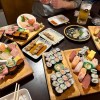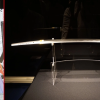While Japan’s capital does indeed have the giant TV screens and vivid neon signs that Hollywood movies use as shorthand for “Tokyo,” a lot of advertising in the cities comes from plain old-fashioned legwork, particularly in the entertainment and red light districts. Opening a new restaurant? Trying to drum up business for you hostess bar? In either case, you put an employee on the street, flagging down prospective customers and giving them your establishment’s sales pitch, and even guiding them to the entrance if need be.
However, officials are looking to shut down this face-to-face marketing practice, known in Japanese as kyaku hiki (literally “customer pulling”) in one of Tokyo’s biggest tourist draws, the anime and video gaming mecca of Akihabara.
Akihabara doesn’t have quite the level of in-your-face nightlife as Shinjuku’s Kabuki-cho or the backstreets of Roppongi. Still, the neighborhood’s heavy concentration of anime and video game shops attract hordes of young men who bring their wallets, and in recent years the district has seen the opening of more and more drinking establishments, maid cafes, and other, more risqué businesses willing to meet the desires of their male clientele.
But as animation and interactive entertainment become increasingly mainstream, Akihabara is also attracting a wider demographic than local males age 15-29. Not only is a stop by Akihabara to take a peek at the otaku lifestyle becoming a regular part of domestic travelers’ Tokyo itinerary, as the number of Japanese fans around the globe increases, the neighborhood is seeing more and more visitors from overseas.
Concerned about the image projected by kyaku hiki activities catering to man’s more lascivious desires, officials from Chiyoda Ward, of which Akihabara is a part, have put together a proposal to ban the practice within the ward, regardless of the type of business being represented.
“Akihabara receives a wide variety of visitors, both from inside the country and abroad,” Ward Chief Masami Ishikawa told reporters, “so we want to make it a safe and clean environment.”
At the current time, Chiyoda Ward officials have yet to declare an intention to outright ban any of these businesses themselves. Nor does the proposed kyaku hiki prohibition carry any sort of criminal punishment. The plan calls for officials to patrol the neighborhood, and order violators to cease and desist. Those who fail to comply may have their names publicly announced by the ward.
One reason for officials’ new stance is thought to be the recent popularity in Akihabara of the service known as “JK osanpo.” JK is an abbreviation for joshi kosei, or high school girl, while osanpo means a walk or stroll. Just as it sounds, in JK osanpo customers pay for the privilege of walking around Akihabara with a female high school student. While ostensibly no unchaste acts are performed, the fact that many of the girls involved in kyaku hiki for it are still minors has critics worried that it could become a breeding ground for juvenile prostitution.
In light of the shifting legal environment, it seems the best way to go for a walk with a high school girl is still to, you know, work up the guts to ask one you go to school with. If you’re old enough that that’s no longer an option, it’s probably wise to move on to girls a little closer to your own age.

 Tokyo’s ban on high school girls working in the controversial JK industry goes into effect this summer
Tokyo’s ban on high school girls working in the controversial JK industry goes into effect this summer Japanese graduates rush to make a little extra cash…by selling their school uniforms online
Japanese graduates rush to make a little extra cash…by selling their school uniforms online Should Akihabara be walled off from the rest of Tokyo? Twitter user proposes bold rezoning plan
Should Akihabara be walled off from the rest of Tokyo? Twitter user proposes bold rezoning plan Godzilla gets official Tokyo residency papers, copies being given out free to fans
Godzilla gets official Tokyo residency papers, copies being given out free to fans RocketNews24’s Meg models the entire line of Japan’s new schoolgirl outfit loungewear 【Photos】
RocketNews24’s Meg models the entire line of Japan’s new schoolgirl outfit loungewear 【Photos】 McDonald’s new Happy Meals offer up cute and practical Sanrio lifestyle goods
McDonald’s new Happy Meals offer up cute and practical Sanrio lifestyle goods More foreign tourists than ever before in history visited Japan last month
More foreign tourists than ever before in history visited Japan last month Starbucks reopens at Shibuya Scramble Crossing with new look and design concept
Starbucks reopens at Shibuya Scramble Crossing with new look and design concept Arrest proves a common Japanese saying about apologies and police
Arrest proves a common Japanese saying about apologies and police The oldest tunnel in Japan is believed to be haunted, and strange things happen when we go there
The oldest tunnel in Japan is believed to be haunted, and strange things happen when we go there Is the new Shinkansen Train Desk ticket worth it?
Is the new Shinkansen Train Desk ticket worth it? Amazing exhibition of Japan’s legendary “cursed katana” is going on right now【Photos】
Amazing exhibition of Japan’s legendary “cursed katana” is going on right now【Photos】 Shinjuku izakaya’s all-you-can-eat-and-drink plan is one of Tokyo’s best secret cheap eats
Shinjuku izakaya’s all-you-can-eat-and-drink plan is one of Tokyo’s best secret cheap eats Real-life Rurouni Kenshin reverse-blade katana, forged by master swordsmith, now on display【Pics】
Real-life Rurouni Kenshin reverse-blade katana, forged by master swordsmith, now on display【Pics】 The best cosplayers from Day 1 of Summer Comiket 2023【Photos】
The best cosplayers from Day 1 of Summer Comiket 2023【Photos】 Disney princesses get official manga makeovers for Manga Princess Cafe opening in Tokyo
Disney princesses get official manga makeovers for Manga Princess Cafe opening in Tokyo We try out “Chan Ramen”, an underground type of ramen popular in the ramen community
We try out “Chan Ramen”, an underground type of ramen popular in the ramen community Foreign English teachers in Japan pick their favorite Japanese-language phrases【Survey】
Foreign English teachers in Japan pick their favorite Japanese-language phrases【Survey】 Beautiful new Final Fantasy T-shirt collection on the way from Uniqlo【Photos】
Beautiful new Final Fantasy T-shirt collection on the way from Uniqlo【Photos】 There’s a park inside Japan where you can also see Japan inside the park
There’s a park inside Japan where you can also see Japan inside the park New Studio Ghibli bedding sets are cool in all senses of the word
New Studio Ghibli bedding sets are cool in all senses of the word Japanese convenience store packs a whole bento into an onigiri rice ball
Japanese convenience store packs a whole bento into an onigiri rice ball Hanton rice — a delicious regional food even most Japanese people don’t know about, but more should
Hanton rice — a delicious regional food even most Japanese people don’t know about, but more should New Pokémon cakes let you eat your way through Pikachu and all the Eevee evolutions
New Pokémon cakes let you eat your way through Pikachu and all the Eevee evolutions Hamburg and Hamburg Shibuya: A Japanese restaurant you need to put on your Tokyo itinerary
Hamburg and Hamburg Shibuya: A Japanese restaurant you need to put on your Tokyo itinerary Studio Ghibli releases Kiki’s Delivery Service chocolate cake pouches in Japan
Studio Ghibli releases Kiki’s Delivery Service chocolate cake pouches in Japan Japan’s bone-breaking and record-breaking roller coaster is permanently shutting down
Japan’s bone-breaking and record-breaking roller coaster is permanently shutting down New definition of “Japanese whiskey” goes into effect to prevent fakes from fooling overseas buyers
New definition of “Japanese whiskey” goes into effect to prevent fakes from fooling overseas buyers Foreign passenger shoves conductor on one of the last full runs for Japan’s Thunderbird train
Foreign passenger shoves conductor on one of the last full runs for Japan’s Thunderbird train Our Japanese reporter visits Costco in the U.S., finds super American and very Japanese things
Our Japanese reporter visits Costco in the U.S., finds super American and very Japanese things Kyoto bans tourists from geisha alleys in Gion, with fines for those who don’t follow rules
Kyoto bans tourists from geisha alleys in Gion, with fines for those who don’t follow rules Studio Ghibli unveils Mother’s Day gift set that captures the love in My Neighbour Totoro
Studio Ghibli unveils Mother’s Day gift set that captures the love in My Neighbour Totoro Domino’s Japan now sells…pizza ears?
Domino’s Japan now sells…pizza ears? New Japanese KitKat flavour stars Sanrio characters, including Hello Kitty
New Japanese KitKat flavour stars Sanrio characters, including Hello Kitty Kyoto creates new for-tourist buses to address overtourism with higher prices, faster rides
Kyoto creates new for-tourist buses to address overtourism with higher prices, faster rides Sales of Japan’s most convenient train ticket/shopping payment cards suspended indefinitely
Sales of Japan’s most convenient train ticket/shopping payment cards suspended indefinitely Sold-out Studio Ghibli desktop humidifiers are back so Totoro can help you through the dry season
Sold-out Studio Ghibli desktop humidifiers are back so Totoro can help you through the dry season Japanese government to make first change to romanization spelling rules since the 1950s
Japanese government to make first change to romanization spelling rules since the 1950s Ghibli founders Toshio Suzuki and Hayao Miyazaki contribute to Japanese whisky Totoro label design
Ghibli founders Toshio Suzuki and Hayao Miyazaki contribute to Japanese whisky Totoro label design Doraemon found buried at sea as scene from 1993 anime becomes real life【Photos】
Doraemon found buried at sea as scene from 1993 anime becomes real life【Photos】 Tokyo’s most famous Starbucks is closed
Tokyo’s most famous Starbucks is closed One Piece characters’ nationalities revealed, but fans have mixed opinions
One Piece characters’ nationalities revealed, but fans have mixed opinions We asked a Uniqlo employee what four things we should buy and their suggestions didn’t disappoint
We asked a Uniqlo employee what four things we should buy and their suggestions didn’t disappoint Princesses, fruits, and blacksmiths: Study reveals the 30 most unusual family names in Japan
Princesses, fruits, and blacksmiths: Study reveals the 30 most unusual family names in Japan Studio Ghibli’s new desktop Howl’s Moving Castle will take your stationery on an adventure
Studio Ghibli’s new desktop Howl’s Moving Castle will take your stationery on an adventure Good morning, senpai! Company offering wakeup calls from real Japanese schoolgirls
Good morning, senpai! Company offering wakeup calls from real Japanese schoolgirls New Twitter trend: High school girls posing in noodle restaurants
New Twitter trend: High school girls posing in noodle restaurants Akihabara’s first capsule hotel for women only set to open later this month
Akihabara’s first capsule hotel for women only set to open later this month Now you can request a Tesla when you Uber in Japan with their new Premium EV option
Now you can request a Tesla when you Uber in Japan with their new Premium EV option Traveling in Tokyo? You can start enjoying cheaper taxi rides as of today!
Traveling in Tokyo? You can start enjoying cheaper taxi rides as of today! Walking Bingo: A clever alternative to adventure games like Pokémon GO
Walking Bingo: A clever alternative to adventure games like Pokémon GO Top 10 areas in Japan’s capital region where women who live on their own want to live
Top 10 areas in Japan’s capital region where women who live on their own want to live Tokyo love hotel rents out over a dozen replicas of real-life schools’ schoolgirl uniforms
Tokyo love hotel rents out over a dozen replicas of real-life schools’ schoolgirl uniforms Cosplay organization receives official government grant from Tokyo’s Ota Ward
Cosplay organization receives official government grant from Tokyo’s Ota Ward Sega’s old arcade right outside Akihabara Station is closing, taking takeout cafe stand with it
Sega’s old arcade right outside Akihabara Station is closing, taking takeout cafe stand with it Osaka’s JK parlours rebranding as cafes with new concept: girls sitting in ‘taiiku-zuwari’
Osaka’s JK parlours rebranding as cafes with new concept: girls sitting in ‘taiiku-zuwari’ Akihabara landmark Toranoana is permanently closing, chain downsizes to just one branch in Japan
Akihabara landmark Toranoana is permanently closing, chain downsizes to just one branch in Japan Crackdown on illegal maid cafes looks to be making maids a rarer sight on streets of Akihabara
Crackdown on illegal maid cafes looks to be making maids a rarer sight on streets of Akihabara Can these swimsuit clad cosplay waitresses interest you in some “Shaved Leg Hair Pasta”?
Can these swimsuit clad cosplay waitresses interest you in some “Shaved Leg Hair Pasta”? Female high school students continue to be banned on baseball field at Koshien Stadium in Japan
Female high school students continue to be banned on baseball field at Koshien Stadium in Japan
Leave a Reply